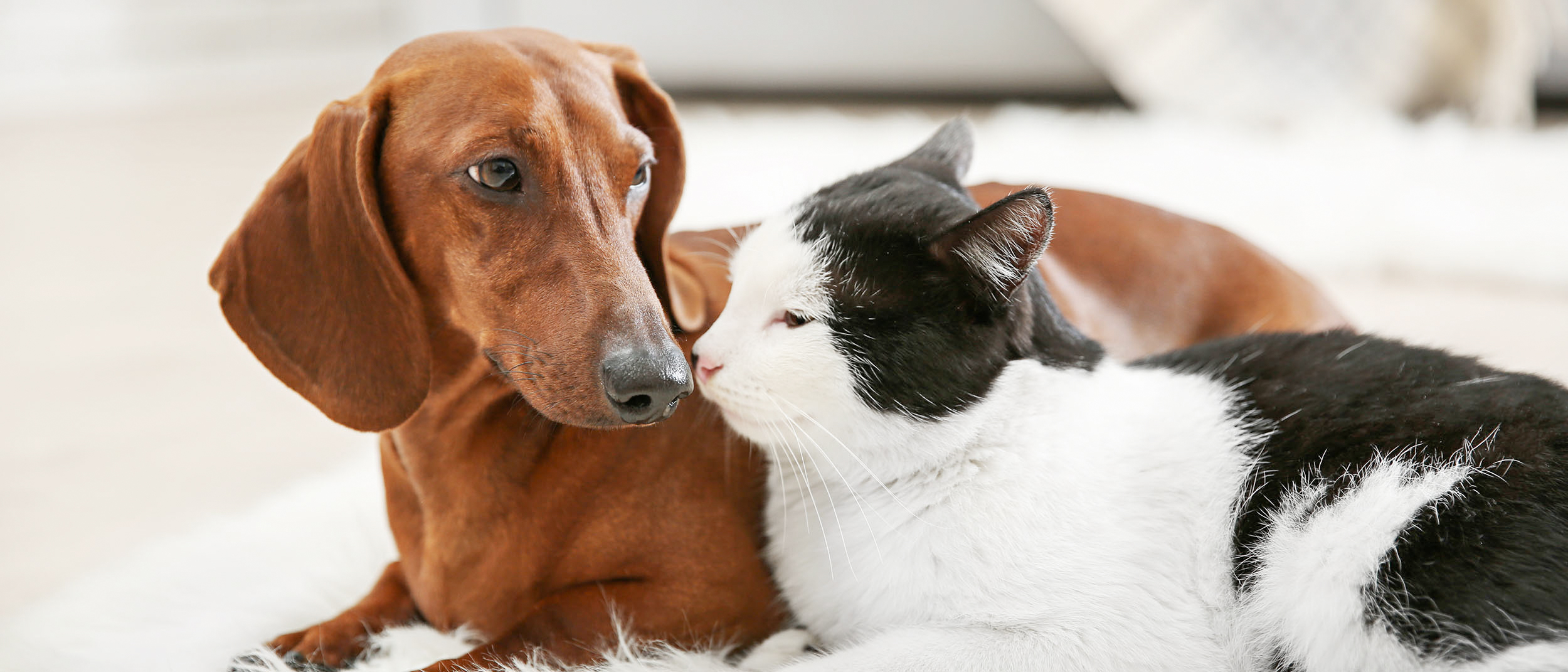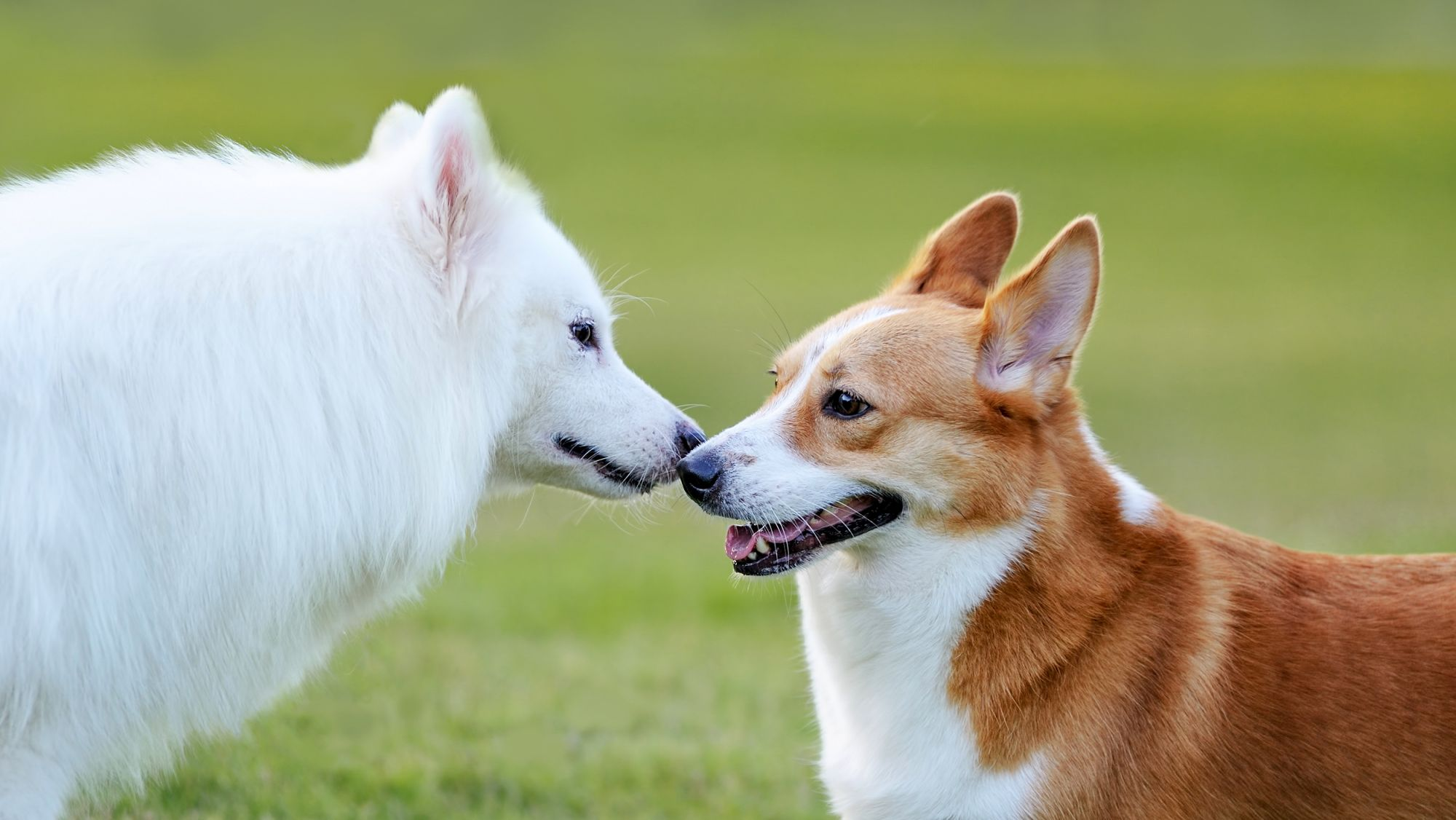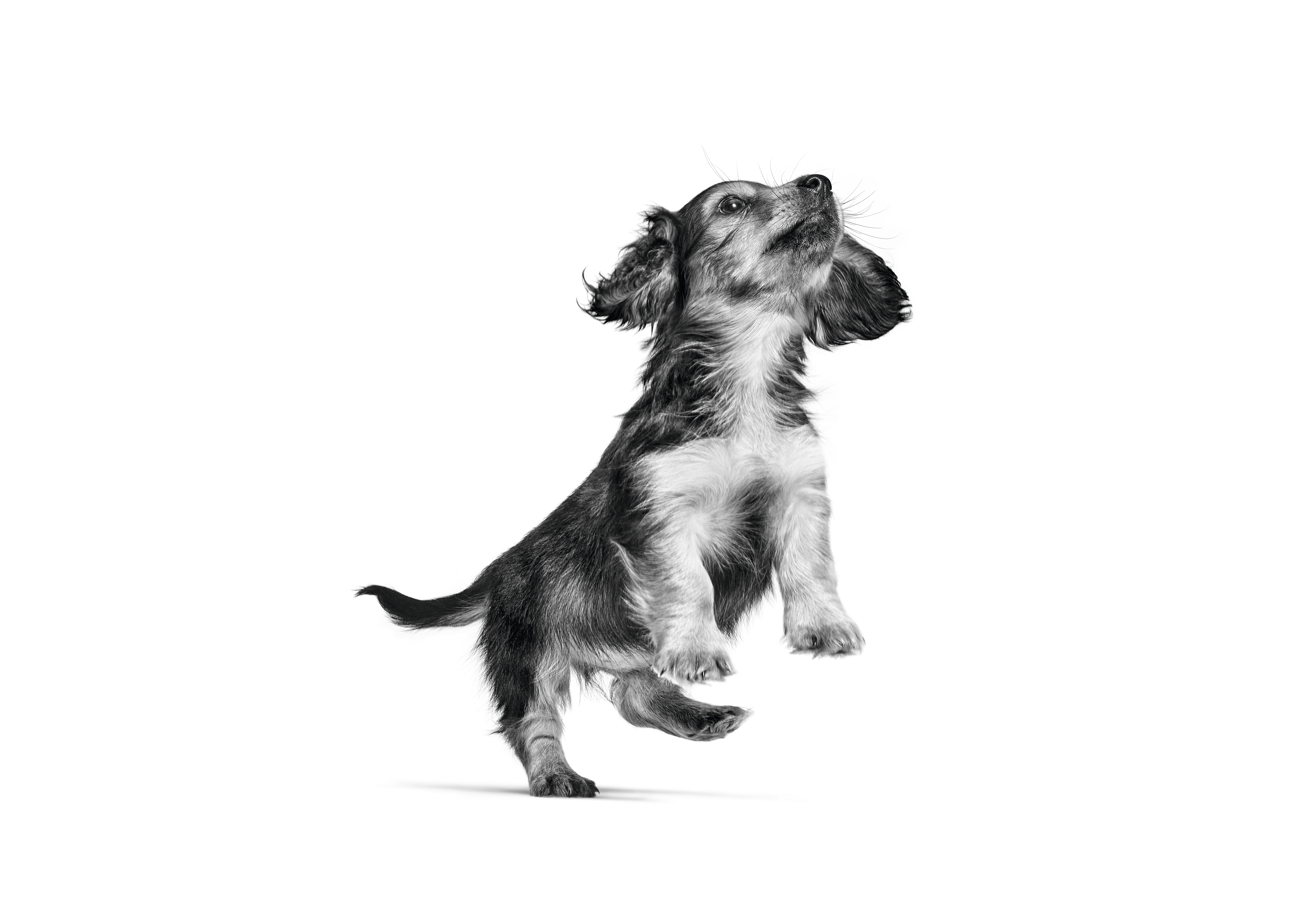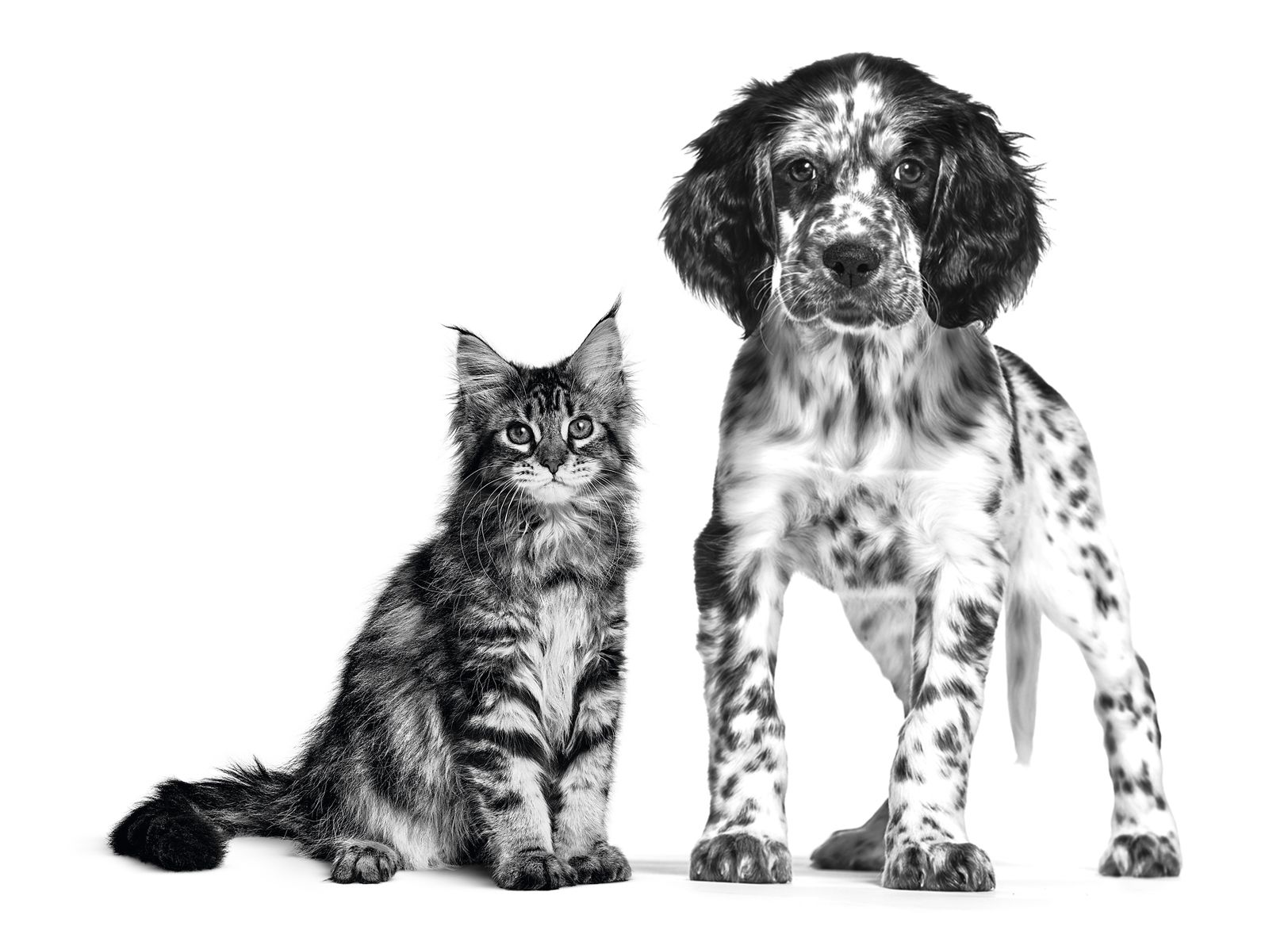Introducing dogs to cats and other pets

Dogs tend to observe strict hierarchies in their relationships, so when your new pet meets other animals in the household, they need to establish their own roles and hierarchy in order to live harmoniously.
When it comes to making introductions, it is important to respect the needs of the existing animal(s) as well as the new dog, in order to maintain the peace and work towards successful coexistence.
Working out if your pets are compatible
- Talk to the breeder or shelter staff: Before bringing a puppy home, talk to the breeder or shelter staff about the measures that have been taken to socialise the puppy. Find out how the puppy is around other dogs and if they have had any exposure to cats if you have them at home.
- Start introductions before coming home: Before bringing your puppy home, you may choose to give it a blanket or toy from your house so they can get used to the scent of your existing pets and vice versa before introducing them.
- Find out about pre-existing concerns: If you are rescuing a dog, it is important to discuss any existing pets with shelter staff before making the decision to bring them home, in order to understand whether the dog has any obvious issues with other animals.
- Give them time: Remember to introduce them gradually and don’t expect them to accept one another instantly. It will take time for existing pets to accept the new member of the family, and for the new arrival it is also a big adjustment.
Introducing your new puppy to existing dogs
- Gradually introduce your new pet: When your puppy first arrives home, bring them into a small, calm, safe area of the house without other pets, to gradually become familiar with their new surroundings.
- Supervise early meetings: When introducing a new dog or puppy to any existing pets, a responsible adult should always be there to supervise.
- Introduce them in neutral territory: Start by introducing your dogs outside the home in a neutral area. Make sure both dogs are on a lead and that you can control them both. Let them sniff and investigate each other.
- Be patient: Do not shout at the older dog if it doesn’t react the way you want it to. Give it plenty of time to get used to the new dog.
- Keep them on the lead: Once they seem to be getting along, then still with leads on, walk side by side back to your home and have them enter the house together. Leave their leads on in case you need to grab one quickly – it is much easier to grab a lead and control the dog than to grab the dog, especially if a fight breaks out.
- Wait until you're comfortable: Once you feel certain that everything is fine between the dogs, you can remove the leads while in the house.

Top tips for peaceful coexistence
- Pay extra attention to female dogs: Regardless of what people think, it is found that female dogs are more involved in aggressions than males and their fights are more difficult to resolve.
- Let them establish their hierarchy: Allow them to establish their own dynamic and give priority to the dominant dog. Dogs have a pack mentality and need to have a clearly-defined position within a group.
- Pay careful attention at meal times: Dog fights generally occur at meal times as there is an element of rivalry between them. At such times, give priority to the dominant or aggressive dog. You may even want to consider separating their eating areas.
Introducing your new puppy to existing cats
If your current cat already knows and likes dogs this process will be much easier, however, things you can do to help things go more smoothly include:
- Keep things calm and controlled: Keep your dog on the lead and keep it calm when first introducing them. Don’t forget to reward your dog for staying calm.
- Allow plenty of space: Make sure your cat can’t be trapped in a corner, and choose a room where it feels comfortable and where there are places to hide – ideally with access to areas that are higher up than the dog.
- Give them time: Don’t try to force your cat into contact with the new dog, let it get closer in its own time.
Introducing new pets to existing ones takes time, and it is not a relationship that is always immediately easy. However, by asking about your new dog’s temperament and experiences before bringing them home, and by respecting the needs of both your new dog and existing pets, you can gradually understand how they will interact with each other and work towards a successful and peaceful relationship.
Related Articles


Join Royal Canin
Like & share this page